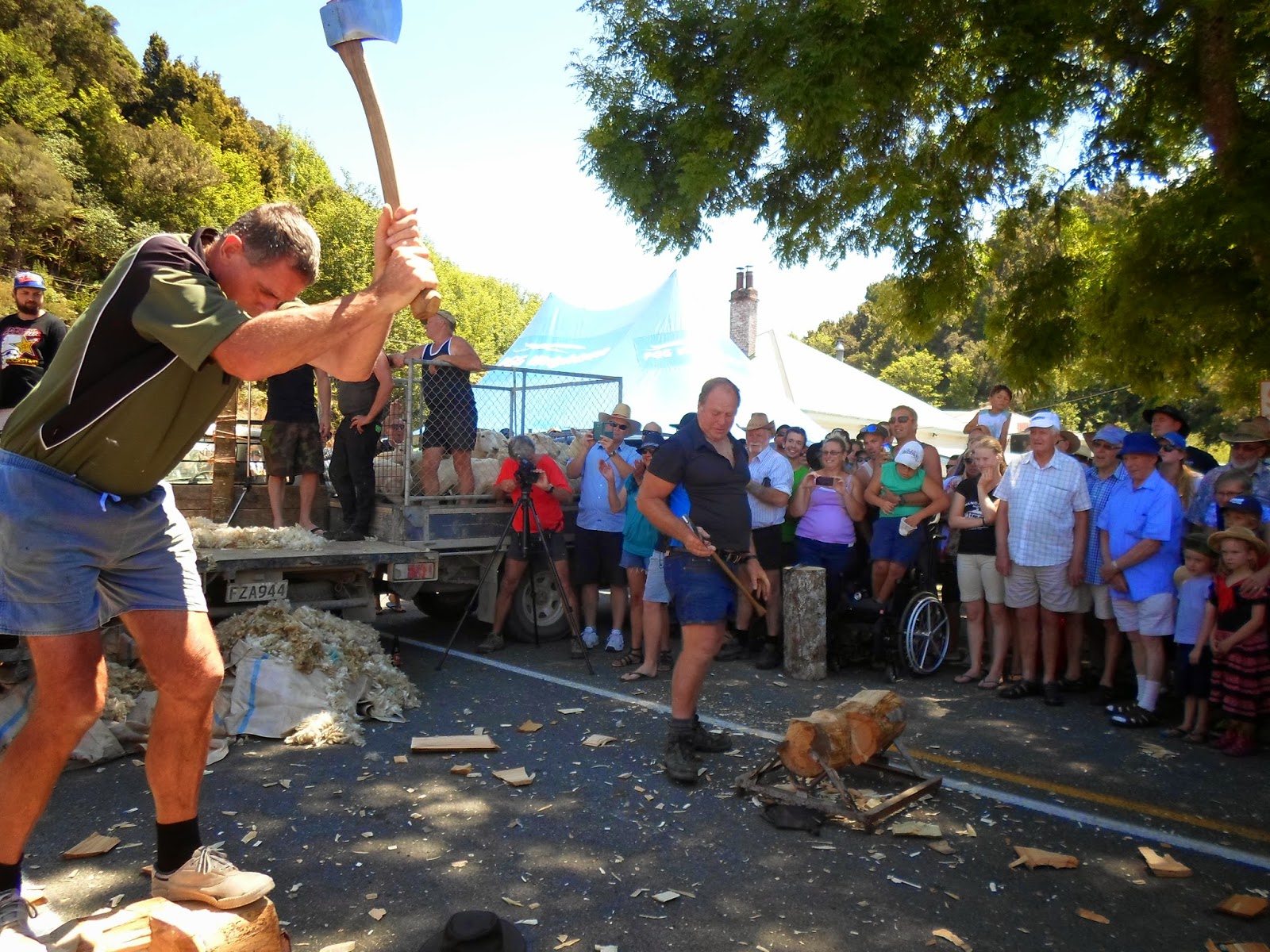The Republic of
Whangamomona is a small township located along Highway 43, also known as the
Forgotten Highway. The town of Whangamomona was officially established in 1897,
2 years after settlers arrived in the area. In 1989 it became a Republic, in
protest of a change in boundary lines for the regional councils. Until 1989,
Whangamomona was in the Taranaki district, but the new boundaries would change
that so the township became part of the Manawatu-Wanganui district.
The township
wanted to remain part of Taranaki, and since new boundary lines did not allow
this, they declared themselves a Republic. Since then, there have been 27
Republic of Whangamomona Independence Day celebrations. They are now held once
every two years, and have become a festival which attracts visitors from far
and wide. An important part of the celebration is electing the next president.
The first president was Ian Kjestrup, and was in office for 10 years. The first
elected animal president was Billy Gumboot the Goat, who won the 1999 election
by eating the other candidates’ ballots.
The 2015
Independence Day celebration was held on 24 January. It was a lovely sunny
summer day, the hottest so far this summer. It would be hard to say how many
people attended, but the number of people in the space available made it look
like a good crowd. When you reached the edge of the Republic you were greeted
by border control, who presented you with a Republic of Whangamomona passport,
in exchange for $5. Once you cleared the border, you were sent to immigration
to get your official entry stamp on the passport.
I got there just
in time to watch the Gutbuster. Each year contestants join in a race up to the
top of an incredibly steep hill (which also doubles as a sheep field) and back
down. I was quite impressed with how quickly some of the runners made it to the
top. The oldest contestant was 67 (he apparently runs the race every time they
hold it), and the youngest looked to be somewhere between 6 and 9. All I could
think was kudos to them, both because of the temperature (the race was held at
1230, so not the coolest part of the day), and because of the course for the
race.
While we browsed
stalls selling all manner of local arts, crafts, and trinkets (and yummy things
like meat pies, homemade baking and ice cream), we had the pleasure of enjoying
a bagpipe band populated by local players of all ages. After a nice picnic
lunch in the shade (the sun was ridiculously hot, 27 degrees Celcius), we
enjoyed the next round of competitions.
Teams of 5 people
were put together for this event. One person hammered a nail into a stump, the
next had to shear a sheep, up third was a wood-chopper, followed by a pie-eater
and lastly a pint-drinker. The competition was open to anyone willing to take
the challenge. Some of the wood-choppers were as young as 8 or 10, and eager to
show off their skills.
 |
| Blade shearing |
 |
| Team Sports |
 |
| Shearing competition t-shirt |
 |
| NZ possum |






No comments:
Post a Comment